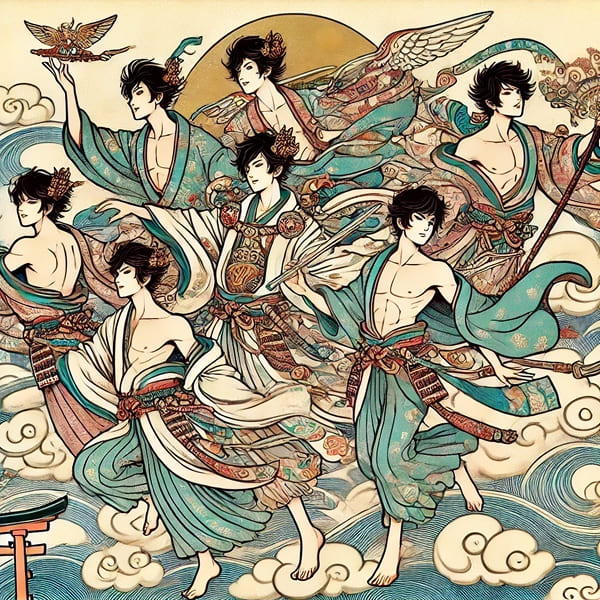Yaso-kami: The Many Gods in Japanese Mythology and Their Role in Ōkuninushi’s Tale

Contents
Betrayed by his divine brothers. Set ablaze. Left to die.
But he rose again.
In the rich tapestry of Japanese mythology, few stories are as dramatic—and as human—as that of Ōkuninushi and the Yaso-kami, the so-called “Eighty Gods.” These deities, not eighty in number but myriad in spirit, were his brothers in name—but rivals in heart.
Their tale is not just about gods; it's about jealousy, ambition, and the resilience of a soul who refused to fall. When Princess Yagami chose Ōkuninushi over his siblings, the gods turned against him. Burned, betrayed, and cast aside, he endured trial after trial—and emerged stronger, wiser, and divinely chosen to rule the land.
This legend, preserved in Japan’s oldest chronicles like the Kojiki, reminds us that greatness often begins in suffering, and that even among gods, the heart is tested.
In this article, we delve into the myth of the Yaso-kami, exploring their role in Shinto lore, their rivalry with Ōkuninushi, and how their ancient conflict still speaks to the human spirit today.
The Myth: Ōkuninushi and His Divine Siblings
Born from the same divine lineage, Ōkuninushi and the Yaso-kami were meant to cooperate in shaping the earthly realm. However, tensions rose when they all sought the hand of Yagami-hime, the princess of Inaba. Yagami-hime chose Ōkuninushi, which triggered jealousy among his many brothers.
The Yaso-kami conspired to eliminate him by sending him into perilous situations—including setting him on fire. Despite their cruelty, Ōkuninushi survived every ordeal. Through his endurance and inner strength, he proved himself worthy and was ultimately entrusted with the role of ruler over the land.
This story exemplifies the values of resilience, courage, and divine favor—values woven into the fabric of Japanese spiritual tradition.
Yaso-kami vs. Yaoyorozu-no-Kami: What’s the Difference?
While both Yaso-kami and Yaoyorozu-no-Kami involve numbers, they differ significantly in meaning. Yaoyorozu-no-Kami, or the “Eight Million Gods,” is a broader concept that reflects the Shinto belief in kami (gods or spirits) dwelling in all aspects of nature—trees, rivers, rocks, even household objects.
On the other hand, Yaso-kami refers to a specific mythological group of gods tied to Ōkuninushi’s story, highlighting personal dynamics and divine drama within a mythic family.
Why the Yaso-kami Myth Still Matters
The legend of the Yaso-kami is more than just an ancient tale—it offers insight into the emotional complexity and interpersonal struggles of gods in Japanese mythology. Themes of jealousy, perseverance, and eventual triumph resonate with modern audiences.
Ōkuninushi’s journey from outcast to revered leader reminds us that true greatness comes not from power alone, but from empathy, patience, and inner conviction—principles still celebrated in Japan’s cultural consciousness today.